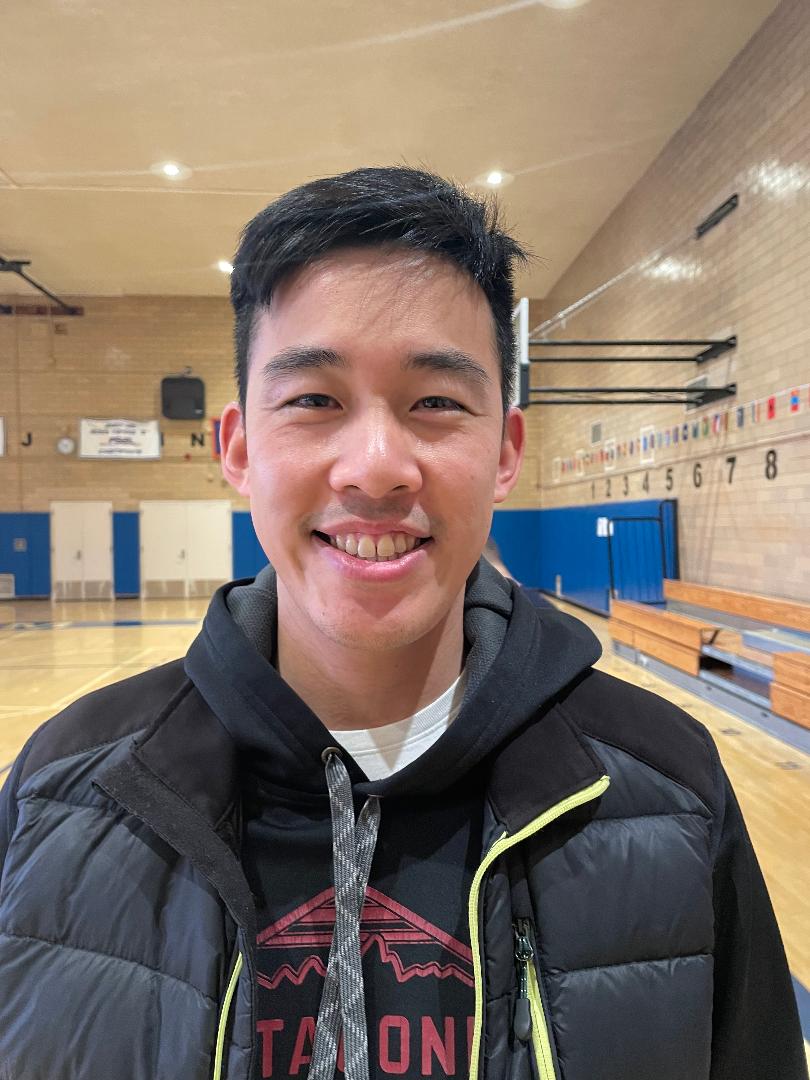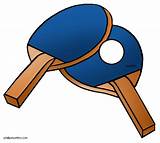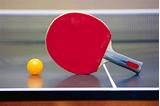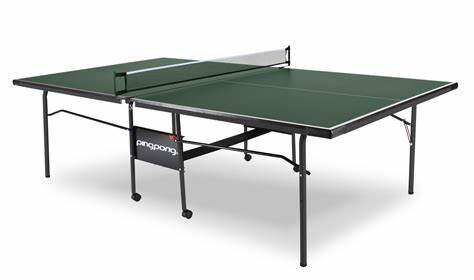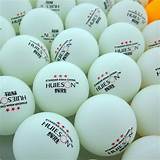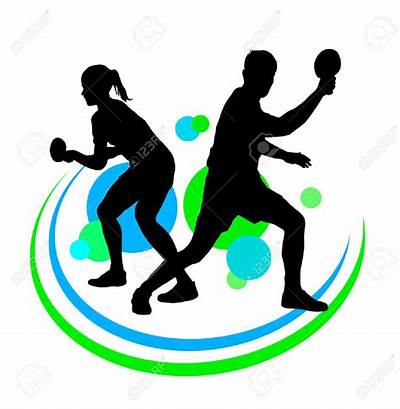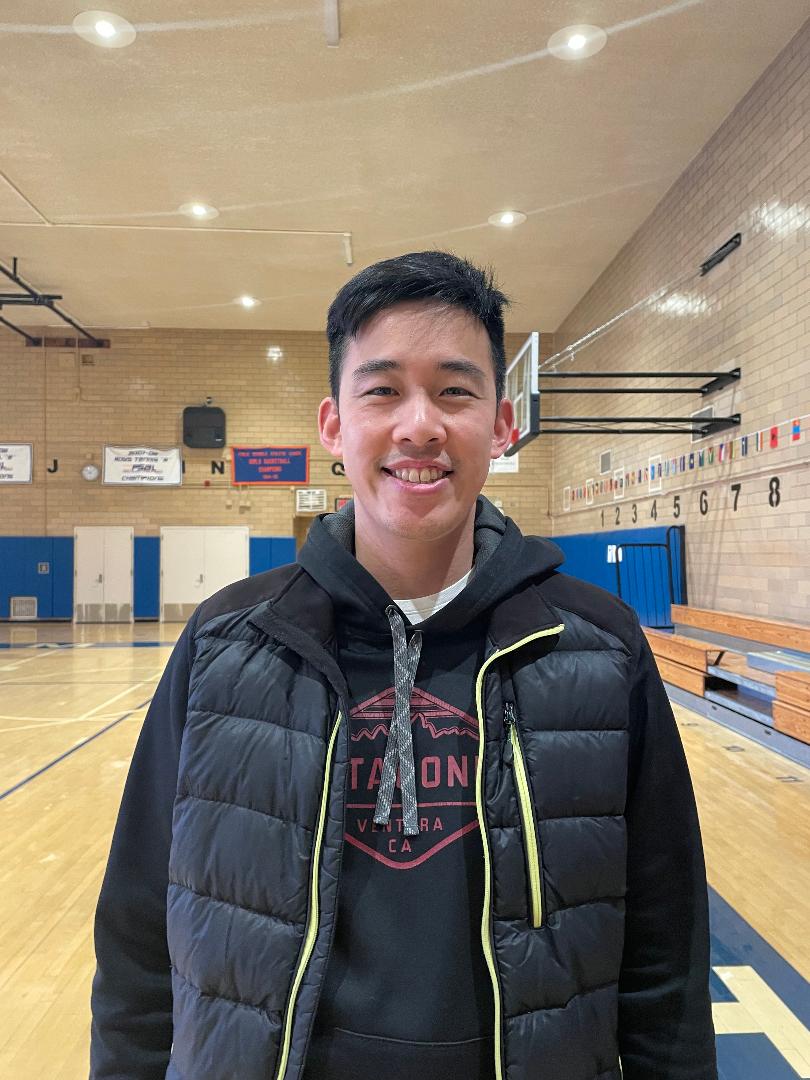By Zoe Thault and Thea Trelstad
(When you think about intramural team sports, table tennis may not immediately come to mind.But Manhattan Center not only has a very competitive all female table tennis team, the team played well enough to make the city-wide playoffs this year! Their coach, Mr. Cheung, was kind enough to talk to The RamPage about his team, the playoffs, and the unique dynamics of this indoor winter sport.)
Zoe: So—you are the coach of the girls table tennis team, right?
Mr. Cheung: Yes.
Zoe: When do you start practices? And how do you recruit your players?
Mr. Cheung: It’s a winter sport and the season starts the first week of November. So usually I’ll hand out papers in mid-October. If we don’t make the playoffs we will end in January, but if we do then we finish around mid-February. In terms of recruitment, I don’t really put any signs up, it’s more word of mouth.
I was really fortunate, because I’ve had the current senior group since their freshman year, so I already had a full team before the season started. Those who came [later] who were not seniors I took in order to have a team in the future and so I don’t have to go through the recruiting process next year. The non-seniors were able to learn a little bit this year from the seniors. But in terms of recruitment, I actually recruited this senior class when they were freshman. I literally sat in the hallway because I knew there was a freshman seminar, and I was like, ‘Ok, I’m gonna aim to recruit freshmen so I can have a 4 year retention if they want to stay on the team.’ I sat in the hallways and said: ‘Hey, do you want to join table tennis?’ So that’s how I did it.
Zoe: Are there any promising new recruits this year?
Mr. Cheung: There are some good new recruits. Some freshmen and some sophomores.
Zoe: You guys got to the playoffs this year, right?
Mr. Cheung: We got to the playoffs, and we were very fortunate to be placed in a high seed. However, our division for table tennis is not one of the strongest, so although we were a high-seeded team in our division, the team we played against was better than us. It was a winnable game, I think I just mismanaged the game flow, and I didn’t set the lineup properly.
For table tennis the lineup is set for the season. I like to go two games at a time so I can coach both games respectively and watch, instead of going to 4 games and not watching every game. As the home coach I can choose the order of the lineup, and I think I did the order wrong. Unfortunately, we didn’t make it past the playoffs, but it was this team’s first time in the playoffs. They’d never been to the playoffs prior to this year.
Zoe: When was the last time you guys made it to the playoffs?
Mr. Cheung: This is my fifth year coaching table tennis, and my [very] first year coaching we made the playoffs. So that would mean four or five years ago.
Zoe: Do you think after this year’s seniors leave you guys will have a chance at the playoffs again?
Mr. Cheung: The practice that newer players got with our seniors allowed them to get better, and I’ve seen it throughout the season. I’ll also give them workouts to do and some skills to work on between now, and next season. It’s a long off-season, about nine months. I feel like we have a good chance, because our team is looking pretty talented. Again, we’re gonna be in the same division—the Bronx and Manhattan division—so I know which teams we are going to play, and I know which are the powerhouse teams. So, hopefully we do some good damage, because most of the teams that we had a difficult time against also had a lot of seniors as well. So, it’ll be close.
Zoe: How many times do you guys practice, on average, each week?
Mr. Cheung: Three or four days a week. Monday through Thursday typically. I try not to do Fridays or Saturdays and definitely not Sundays. On Saturdays I just let them catch up on their sleep. On Fridays, people have plans, so I just let them be.
Zoe: And what do the practices look like?
Mr. Cheung: In terms of structure, a small part of it that’s slightly tedious is the fact that we’re in the cafeteria. We’re very fortunate to have such a big space, but that also means that we spend a lot of time just setting up and cleaning up. We have to move all the cafeteria tables, then get our tables from the boys locker room which is on the other side of the basement. We have to take them out of the cages in the boys locker room, maneuver them through the door (which can be difficult because the tables are not very maneuverable), and finally set up our six tables. Typically, I’ll have them warm up with drills. So, a forehand to forehand drill, a backhand to backhand, and then a series of drills and some games.
Obviously, with a large roster, and only six tables, not everyone can play at the same time. If we’re really ramping up for [a competition] or a playoff game, I’ll have the players do some type of practice on the sidelines when they have down time. But if it’s a normal practice and they’re not playing they’ll take the time to do homework. They are student-athletes, and I want to focus on the student as well. I’m fortunate that the students that I’ve always gotten have had relatively high grade point averages and I want to make sure they keep their averages up. I think having that down time helps in its own way. It’s an opportunity for the players to have the seniors give the underclassmen some advice about what they did throughout their years on the team. If anybody needs help with certain academic topics, they can help each other. The players build friendships with each other and good team comradery, as well. It’s different from other sports. It’s intense in its own way; they’re not gasping for air like in basketball, volleyball, or soccer but table tennis does take its toll on your body, so they take some time to rest.
Zoe: How many players are there on the team?
Mr. Cheung: With table tennis there’s 3 single matches, and 2 doubles, so that’s a total of seven people playing. But then I have subs that are ready to go. I would say there are about 15 to 18 active players, in addition to the seven starters. All my starters this year were seniors. All my non-starters know that the upperclassmen have more experience and skill, but still come to help set up and practice. To me, this just shows the quality and character of my team, and I think that stems from a lot of my seniors showing that same selfless attitude, which trickles down to the non-seniors. They’ve created a very team-oriented environment.
Zoe: You coach the girls’ ping pong team, but is there a boys’ ping pong team?
Mr. Cheung: Unfortunately, no.
Zoe: Do you think that we should create a boys’ ping pong team?
Mr. Cheung: I am not opposed to it. I’m not sure of the process, or the steps to take to create one, but I think it would be pretty cool for us to have a guys team. However, I would lose a lot of managers. The managers I have enjoy table tennis, but it’s beyond their table tennis abilities to play…so they contribute to the team in other ways. Many of my managers are team first, so they’ll come pick up all the equipment, and they’ll set up all the tables.
Zoe: So the managers don’t really play?
Mr. Cheung: They play during practice, but they don’t get to play during games. It’s just like any other sport; the manager is there to help facilitate and help the coach with stuff like paperwork. I’m really fortunate to have some really great managers.
Zoe: When did you start playing table tennis, and what inspired you to coach the table tennis team?
Mr. Cheung: I’ve always played casually with my family, and I’ve never competed formally. It’s just one of the family sports that we play together. I wouldn’t say that I’m spectacular, but I’m definitely good.
When I got to MCSM, this was a vacant coaching position, and I believe the P.E. teacher that I took the place of coached table tennis. I asked if I could take the position. I didn’t really know what it entailed, as I’d never coached formally like that before. I think if I had been a little bit more experienced as a coach my first year of coaching, we could’ve made it farther into the playoffs because I had a really great team that year. But it’s been fun so far.
